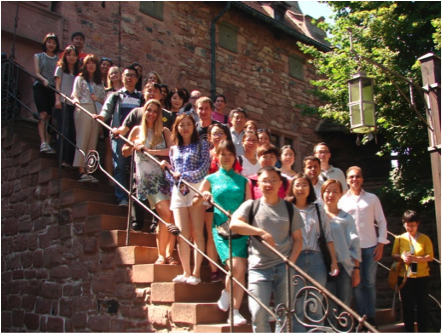CEIPI summer school on IP in Europe 2019: How to create and protect digital business models
The summer school was organized by the Centre for International Intellectual Property Studies (CEIPI) at the University of Strasbourg and has been held for participants from around the world. Digital Transformation is the process of transforming businesses and organizational activities, processes, competencies and models, whether commercial, social or public, around the globe. This year’s summer school was dedicated to explaining how European companies are successful in creating and protecting their digital business models.
 The most common misconception is that digital transformation is just about implementing digital technologies. In reality, ‘digital’ is the vehicle for making deep changes to the operating culture: more customer-focused, agile and responsive to emerging needs and market opportunities. It is not just about taking your existing business completely online, though that may be the most visible component of a digital strategy. It is a lot more than just creating websites, YouTube channels or engaging in social media.
The most common misconception is that digital transformation is just about implementing digital technologies. In reality, ‘digital’ is the vehicle for making deep changes to the operating culture: more customer-focused, agile and responsive to emerging needs and market opportunities. It is not just about taking your existing business completely online, though that may be the most visible component of a digital strategy. It is a lot more than just creating websites, YouTube channels or engaging in social media.
‘Digital’ is a synonym for the pace of change occurring in today’s world, driven by the rapid adoption of technology. ‘Digital’ is an operating system through which we create new competitive advantages and in which the enterprises transform to keep pace with rapidly developing customers and markets.
But Digital Transformation is not a Silicon Valley or a Western phenomenon anymore, it has become a global trend, a source of competitive advantage for states, start-ups, and corporations. Developing nations like India, China, and Brazil are now engaged in the race to create the next generation of digital startups in areas as diverse as Artificial Intelligence, Machine Learning, Big Data & Analytics, Mobile Commerce, and Cloud computing.
Prof. Wurzer gave a presentation on IP Strategy in Europe with industry insights into European best practice cases on IP strategy for different branches, technologies and business models. Digital transformation now dominates many C-suite and boardroom agendas across the European industry. For many corporations, it is still unclear to which extent, and in which way, digitalization will affect businesses, value chains, competition, and customers. The presentation addresses the effect of digitalization on IP strategies in different industries and gives an overview of the best practice.
The full program is available [ here ].



